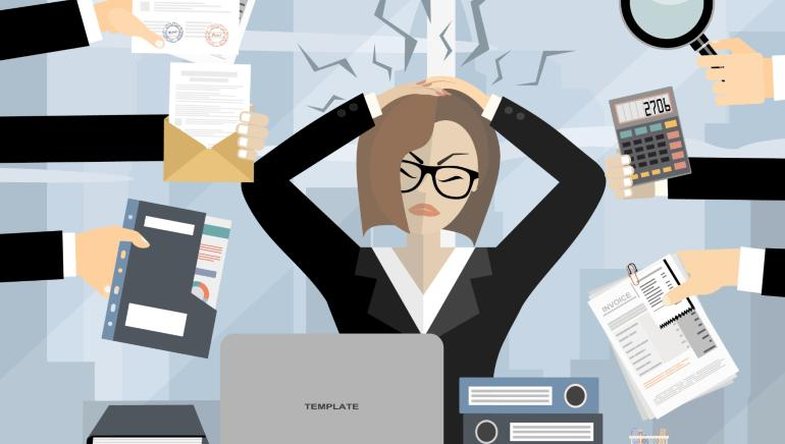
In a pandemic situation like this, nothing is the same as before. Uncertainty about the socio-economic situation, especially if combined with other factors such as family crisis, loneliness, adjustment problems, etc., naturally leads to stress, which can be exacerbated by stress at work.
To further reduce stress at work, here are some suggestions for Forbes written by Sharon Melnick, a business psychologist and author of Success in Stress.
Act, do not object
We experience stress when we feel that situations are out of our control and in such conditions, we lose confidence, focus, inspiration and well-being. In such situations, it is better to focus on yourself than, say, how someone spoke to you.
Take a deep breath
If you feel overwhelmed and tense, take a few deep breaths. It will help you to strike a balance. Do this exercise: Take a deep breath, hold for a while, and then exhale through your nose. Practice yoga as well.
Avoid interruptions
Most of us are "bombarded" during the day: emails, phone calls, messages, urgent meetings (at the Zoom). It is understandable that people experience some kind of confusion. Try to stay focused on work and avoid these unnecessary distractions as much as possible.
Schedule the day with energy and concentration
In stressful situations, the level of productivity drops. You have less energy and no motivation. But to reduce work stress as much as possible, it is best to plan your day with optimism and energy, even if you have to stay home all day. Don't burden your brain by saying, "I'm postponing it for another day."
Eat healthy and sleep well
Malnutrition worsens your system. Consume low-sugar, high-protein products. Sleep is also very important because it "refreshes" the brain and provides you with the energy you need to start the day.
Change the story
Stressful events at work can also be subjective interpretation, so in other words, they are only in your head. However, it is good to look at them in a more objective light, why not by communicating with colleagues, employer / employees, etc.
Identify self-imposed stress
Learn how to spot situations when stress is self-imposing. Things are sometimes simpler than they seem. This will affect self-confidence.
Become the best critics of yourself
It happens that people have about 60,000 thoughts a day and internal negativity is likely to stress you out more. Instead, try to be critical of yourself, but try to motivate yourself and why not, inspire others.





